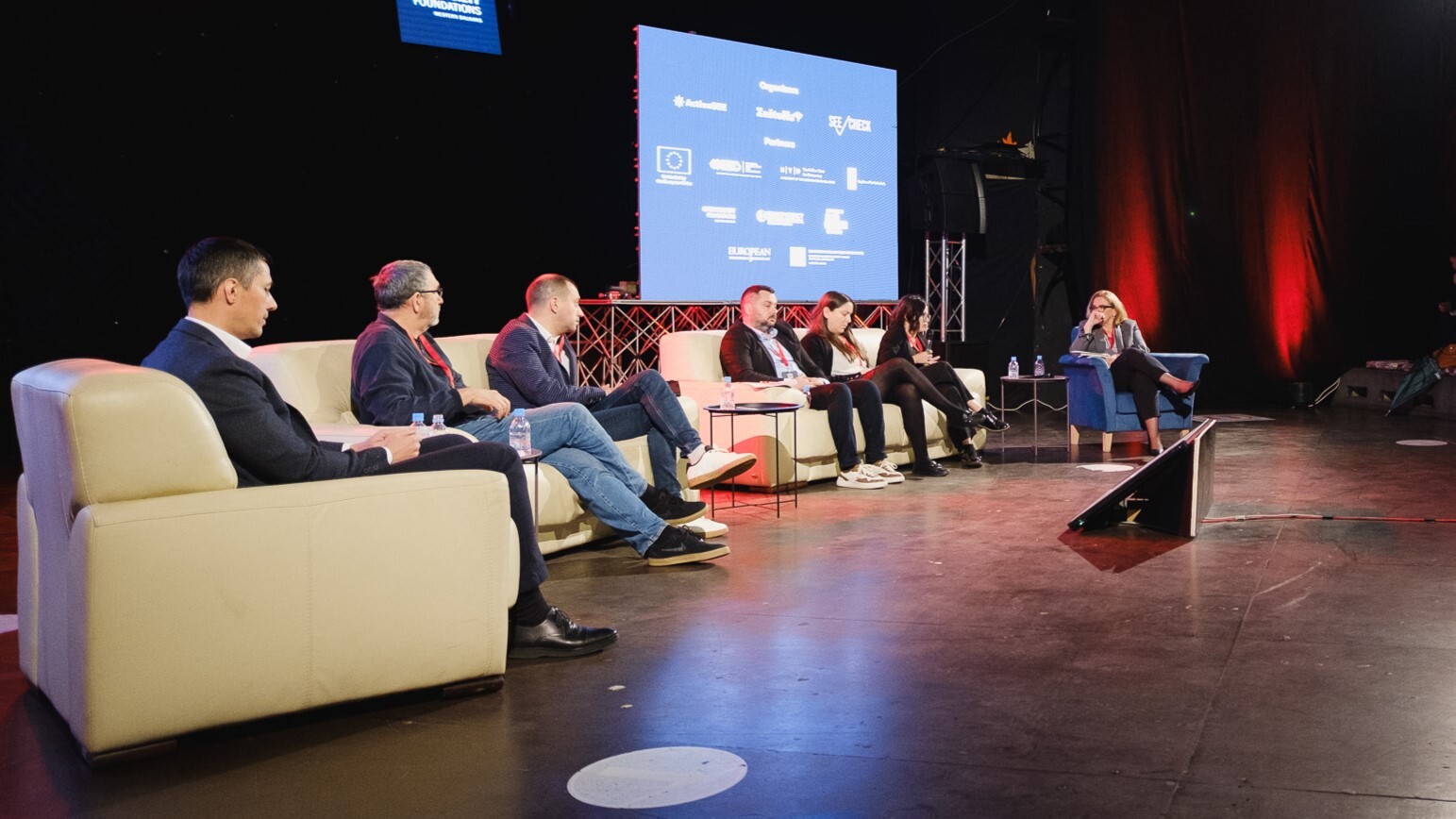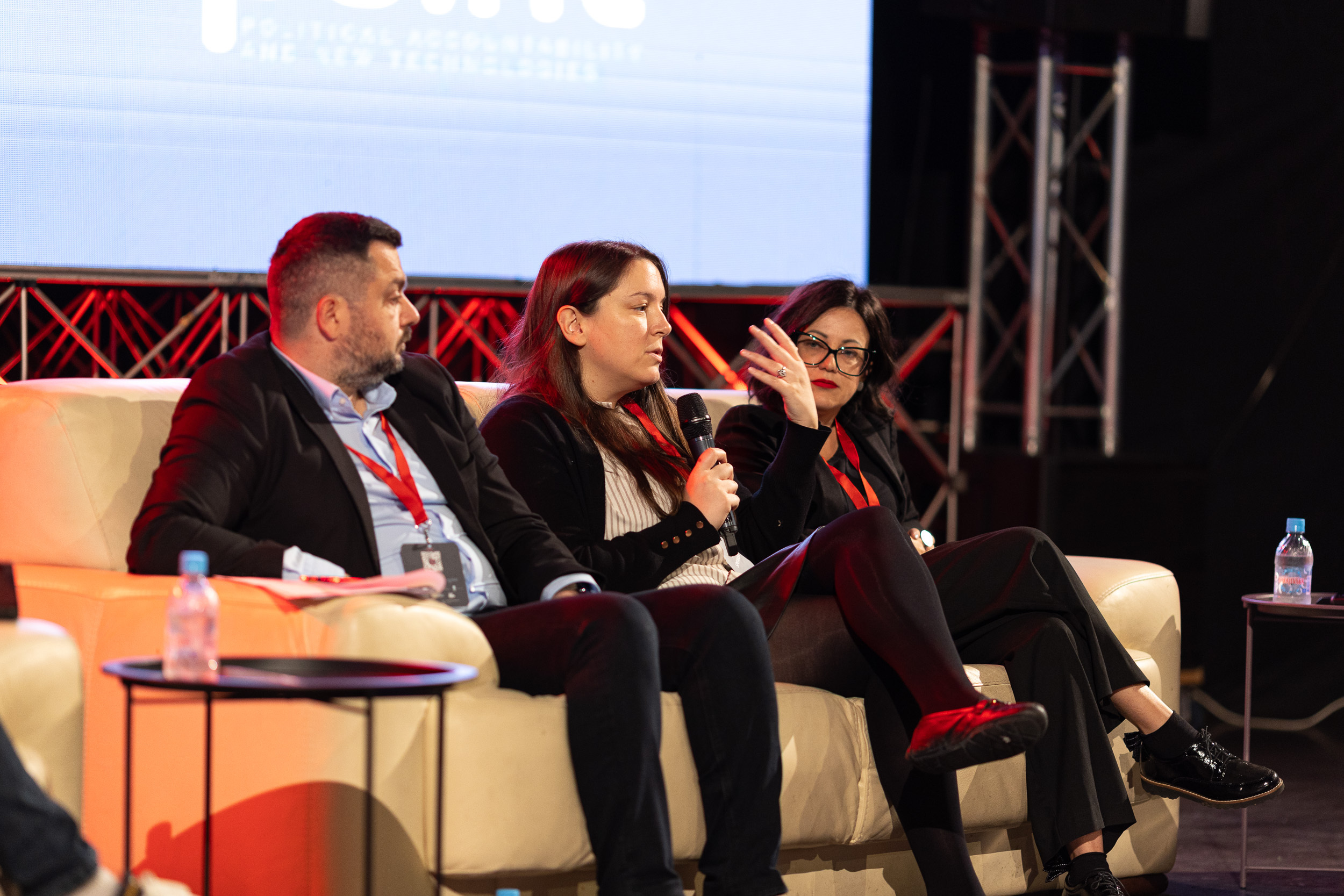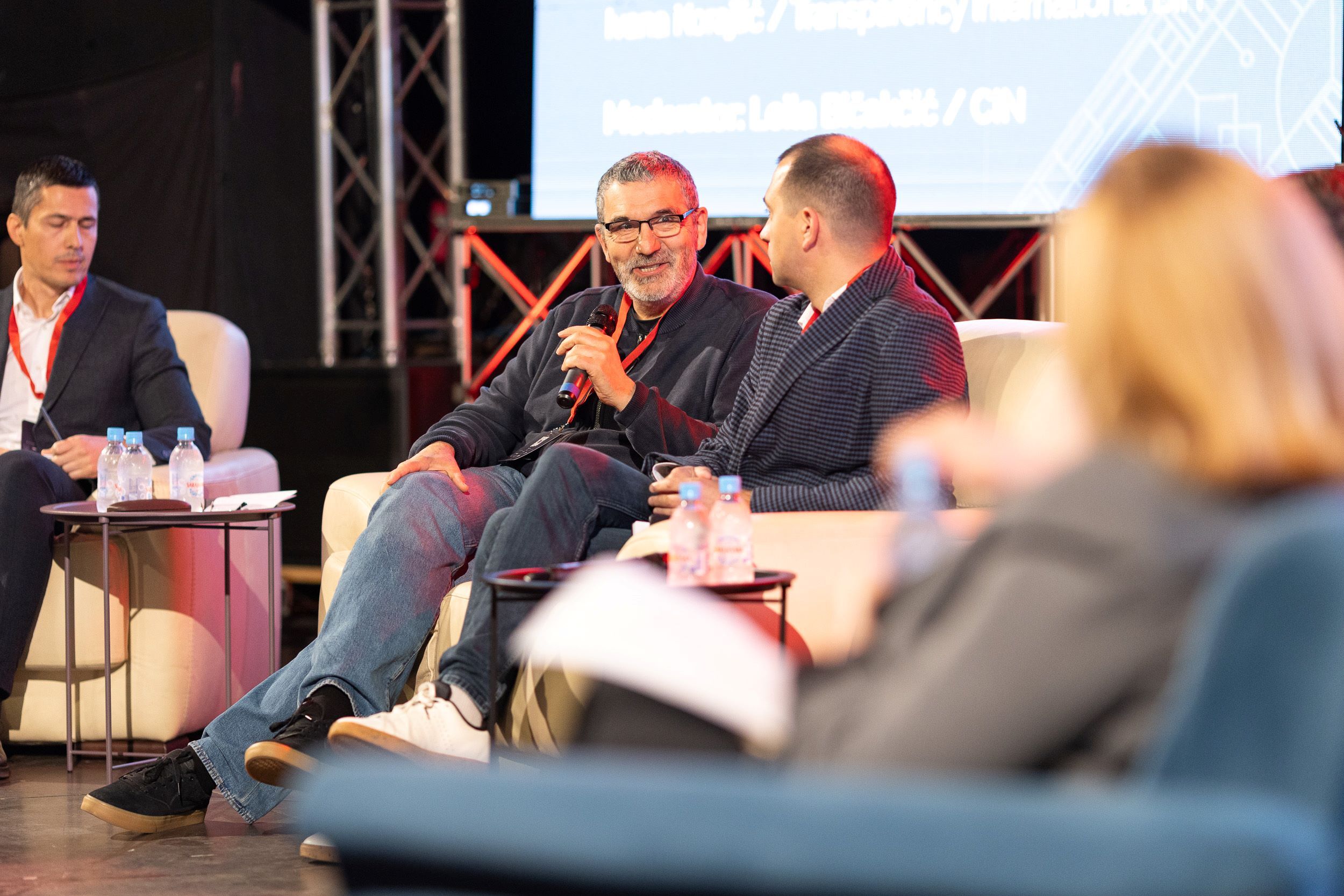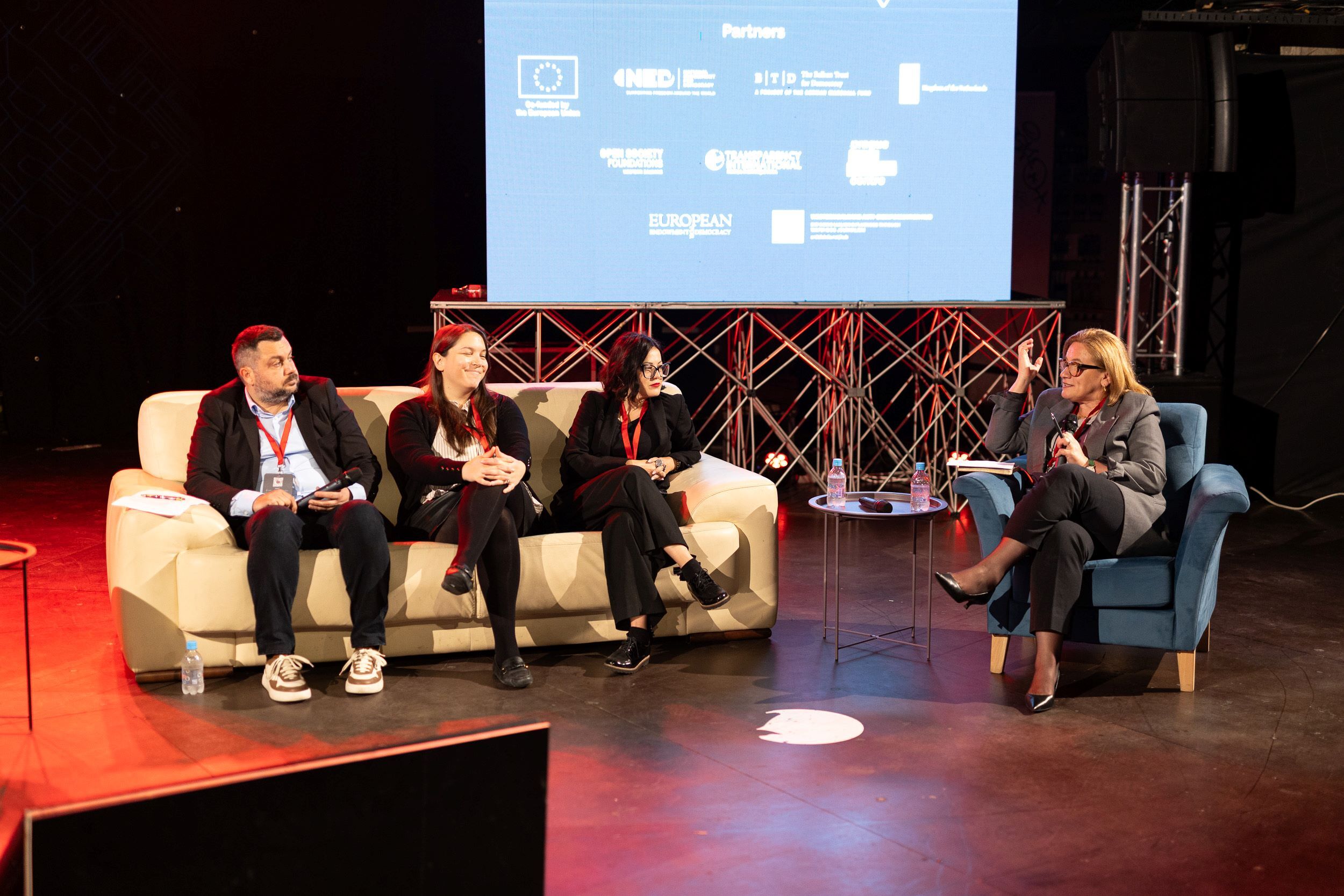Civil Society Between a Rock and a Hard Place – How to Navigate the Current Currents
At the opening panel of the 13th Point Conference in Sarajevo, titled “Civil Society Between a Rock and a Hard Place”, speakers from across the region and Europe confronted the mounting challenges facing civic actors—shrinking funding, rising authoritarianism, and a deep disconnect with the very citizens they aim to serve. The impact of recent USAID funding cuts on civil society in the Western Balkans was, in a sort, a backdrop for this panel both financial and political consequences.

Moderated by Lejla Bičakčić (CIN), the session gathered Igor Blažević (Prague Civil Society Center), Toshe Zafirov (Balkan Civil Society Development Network), Ivan Đurić (CRTA), Šejla Mujačić (GIZ), Miodrag Milosavljević (Open Society Foundations – Western Balkans), and Ivana Korajlić (Transparency International BiH), in what became a stark but forward-looking discussion.
First panelist to speak was Igor Blažević who emphasized that profound social shifts—rising inequality and the spread of authoritarian populism—have created what he calls “abandoned societies.” Civil society, he warned, is disconnected from these realities and continues to operate based on outdated frameworks: “We who call ourselves civil society are disconnected from the big part of our society and we don’t know how to work with the emotions and value systems of the abandoned society”. However, he is not pessimist, but opportunist in a sense that this is the chance to rethink fundamentals: “Let’s reinvent civil society”, he said pointing out that civil society actors are now up against “a very resourceful, systematic opponent,” naming “an alliance of autocrats, kleptocrats, and conservative anti-liberal social movements”.

Toshe Zafirov took a more pragmatic stance, disagreeing with Blažević’s claim that USAID isn’t crucial: “The most affected countries were Serbia, Bosnia and Herzegovina, and Albania. Beyond the financials Zafirov emphasized the human impact: “Highly skilled people were suddenly redundant. And these are professionals who could have strengthened state institutions” He criticized the EU’s failure to act quickly to fill the funding gap saying that the word ‘fast’ and the EU do not belong in the same sentence.”
From Belgrade, Ivan Đurić brought an unsettling yet hopeful account. His organization, CRTA, was recently raided by police under the pretext that “USAID is a criminal organization,” allegedly based on comments by Donald Trump and Elon Musk.
He also noted a shift in the EU’s narrative, one that now recognizes that “EU integration is a whole-of-society process,” not merely a political project. However, distrust persists. “Students don’t want to be associated with NGOs,” Đurić admitted, pointing to a long-standing reputational gap that must be addressed.

Ivana Korajlić’s intervention zoomed in on Bosnia and Herzegovina, particularly Republika Srpska, where laws targeting civil society—such as the foreign agents law and criminal defamation—are advancing with little resistance. “At some point, we will officially become foreign agents by law,” she warned. “For decades, anyone who criticizes the government has been labeled a spy, a traitor, an enemy. That sticks with people,” Ivana said and asked how to explain to citizens that they are not.
She also raised concerns about the absence of a strong international response, pointing out that Western democracies often avoid confronting authoritarian regimes due to their own strategic and economic interests in the region, such as access to natural resources. As a result, civil society is left to fend for themselves.
In the second half of the panel, representatives of key donor organizations reflected on their role in supporting civil society in the region. They addressed both the criticism directed at donor practices and the need for adaptation in a rapidly changing environment.

Šejla Mujačić from GIZ acknowledged that donors also bear responsibility for the projectized nature of civil society work. “We often speak in ways that are only understood within project logic,” she said. “That alienates the broader public.” She emphasized the importance of simplifying messages, citing the work of humanitarian organization Pomozi.ba as an example of tangible, visible impact.
Miodrag Milosavljević explained that the Open Society Foundations underwent a major transformation over the past few years, which included a significant shift in their approach to the Western Balkans. Moving away from separate national offices focused solely on country-specific issues, OSF consolidated its efforts into a single regional structure. OSF Westrn Balkans is now focusing on regional cooperation, EU integration, just energy transition and digital economic and investment cooperation. We are building coalitions with organizations in the region to tackling policy changes and challenges together.
In their final reflections, panelists returned to the need for deeper reinvention. Blažević said that civil society needs to radically change themselves. Korajlić emphasized the broader systemic decay that allows autocratic tendencies to flourish: “We are boiling slowly—without even realizing it.”
From Serbia, Đurić added that hope still lies in citizen-led action. “We’ve never been in a situation like this before,” he said and added that, when the time comes, they are ready to be partners in rebuilding.
At the end Mujačić noted that the world has changed, and that civil society must change with it: “Comparing to the past won’t help. This is the new normal. We need to find a way to navigate it.”
The panel was a reminder that civil society in the Western Balkans faces big challenges —politically, financially, and ideologically.
Author: Biljana Livančić Milić